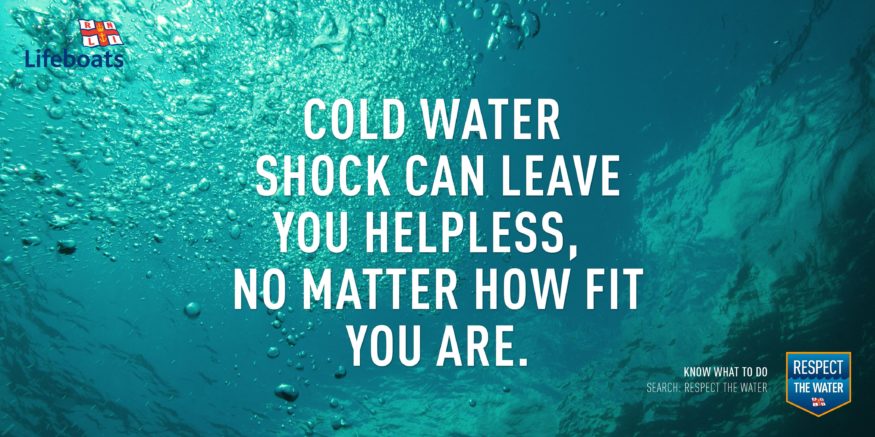For thousands of people along the coast, a festive dip in the sea is a Christmas tradition. In Porthcawl the 55th Christmas Day Swim takes place at Sandy Bay (Coney Beach) with swimmers entering the water at 11.45am.
Before you take the plunge, the RNLI is offering some tips to help you stay safe in the water. Cold water shock is a major cause of drowning and can happen when people enter water that is colder than around 15 degrees C. The best way to avoid cold water shock when taking part in a dip is to wear a wetsuit. If this isn’t possible, the RNLI encourages people to walk into the sea slowly and to stay in shallow water to allow your body to acclimatise to the cold water.
Nick Ayres, RNLI Community Safety Partner, said: ‘Many swimmers are planning to take the plunge with their families and friends over the holidays. As the charity that saves lives at sea, we are here to make people aware of what to do if they or their fellow swimmers get into trouble. We want people to enjoy the water, but also remember it is winter when the sea is at its coldest! Before going in, we urge people to remember the risks of cold water shock and what to do if it happens to them. The simple act of floating could save a life. Swimmers also need to be aware of large waves which can unexpectedly knock them off their feet.’
Cold water shock causes uncontrollable gasping, which increases the risk of swallowing water and puts a strain on the heart. In extreme cases it can cause cardiac arrest. If you’re suffering from cold water shock, you should fight your instinct to thrash around and swim hard, instead just lie back and float.
The initial shock should pass in less than a minute, and when you have regained control of your breathing, you can then try swimming to safety or calling for help. This skill will give you a far better chance of staying alive should you get into difficulty.
Nick added ‘We encourage those who plan on taking a festive dip to join a scheduled event, as they will be in good company with other swimmers, as well as safety staff.
If you see someone else in trouble in the water, fight the instinct to go in yourself. Call 999 and ask for the Coastguard.
The RNLI has comprehensive advice on staying safe at the beach at https://rnli.org/safety/beach-safety



Get Social